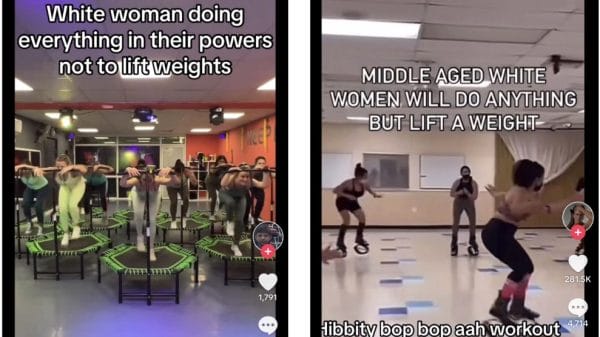Gen Z’s catching heat in the workplace! A new study shows that 75% of managers believe their Gen Z employees are more difficult to work with than any other generation. Where is this claim coming from—and is there any truth to it?
A Shocking Survey
A few weeks ago, ResumeBuilder.com proclaimed that most managers find it difficult to work with their Gen Z employees. Of those 75%, half said they are difficult all or most of the time. Only 4% of managers stated that they experienced no problems with their younger employees.
The most common reasons cited for this disapproval included a lack of technical skills, low motivation, and short attention span.
!function(e,i,n,s){var t=”InfogramEmbeds”,d=e.getElementsByTagName(“script”)[0];if(window[t]&&window[t].initialized)window[t].process&&window[t].process();else if(!e.getElementById(n)){var o=e.createElement(“script”);o.async=1,o.id=n,o.src=”https://e.infogram.com/js/dist/embed-loader-min.js”,d.parentNode.insertBefore(o,d)}}(document,0,”infogram-async”);So how much truth is there to this survey? Are Gen Z employees really the most difficult to work with? Let’s hear from both sides of the spectrum.
An Inside Scoop
For this interview, I pulled employees from the some of the “happiest places on Earth”: Walt Disney World and Universal Studios. Though these jobs may be more unconventional, the corporate structure of a theme park is surprisingly similar to that of a traditional office. However, with the usual monotony of a 9-to-5 job stripped away, amusement park employees have it better than most. So, even in this exciting and fast-paced workplace, do managers still experience problems with their Gen Z employees? Here’s what Thea, 28, a sales supervisor at Universal Studios, had to say.
“In my experience, Gen Z can be very enthusiastic about their jobs. That’s great, because they listen to instructions well, but they can also be unrealistic! They’re excited to have a job, and they’re excited to be in the workforce, but they tend to have no idea what is okay to do, say, wear, etc. They also tend to have very unrealistic expectations about moving up and getting promoted. I also feel like a lot of the time they get very upset or defensive when you try to give them any sort of feedback for improvement… I just find that Gen Z are the most argumentative employees we have. They have the most issues with wardrobe, for example.”
Thea W., Sales Supervisor
Thea’s complaints line up with some of the top critiques given in the survey. It seems that even though the excitement of working at a well-known theme park balances out poor motivation or lack of effort, common workplace problems still remain.
On the other side of the spectrum, here’s what Nicole, 21, an attractions hostess at Disney, told me.
“Working at Disney has been one of the most exciting adventures of my life. As a Gen Z cast member, I’ve had the chance to work with others of varying ages. Coordinators range from a year or two older than me, to decades older. In my year there, I’ve noticed that age is truly just a number. Some of my favorite coworkers are the same age as my parents, if not older! We are all a family and age has never been a factor in seniority. This has allowed me to create bonds with those in other generations that otherwise, I probably would have never spoken to. I can imagine us having some of those common issues, but because of how strict our training is, and the Disney guidelines, a lot of it is erased.”
Nicole F., Attractions Hostess
When pressed about difficulties at work, Nicole admitted that she could see where the critiques were coming from. However, with detailed expectations and a positive work environment for all employees, she stated that in her experience, many generational differences were smoothed over.
A Generational Clash
All over the Internet, people of different generations and occupations are weighing in on the “Gen Z Issue.” Many younger individuals claim that the problems actually stem from unrealistic expectations and poor attitude on the part of managers, rather than their Gen Z workers. Others concede that some of the claims, such as poor social skills and low technological competency, make sense.
On Tiktok, @Jordan_the_stallion8 claims: “You wanna know what’s funny? It’s not that the new generation is more difficult to work with, it’s that the older generation is more difficult to work for. If you don’t believe me, go to your boss and ask for a raise. Or put in your two week notice and watch how personal they take that. It’s not that the newer generation is lazy. They’re not getting paid enough to do more than what they’re already hired to do. That’s not called ‘being lazy,’ that’s called having standards.”
Jordan certainly has a point. Reports show that 61% of Gen Z worry about money at least once a week, a natural result of skyrocketing rent prices, student loan debts, and health insurance premiums. Further reports show that employees are likely to be further motivated if they are fairly compensated for their time. This checks out in the Disney and Universal interviews, which both indicated high motivation of their Gen Z employees. A Disney Attractions Hostess makes 19% above the national average, while those of Universal make even more. Beyond an exciting and entertaining workplace, high wages are also a key motivator for these young employees.
A Complicated Conclusion
As a Gen Z employee myself, I certainly agree that the survey holds many valid claims. My generation struggles with short attention spans for reasons such as ADHD and chronic phone usage. Many people my age disregard authority, lack respect for superiors, and struggle with constructive criticism. As a result of online schooling and the COVID-19 pandemic, many of us also lack critical social and communication skills.
However, several of these critiques are inherent in all young people, or new employees in general. Most importantly, they do not constitute some sort of insurmountable challenge, or terminal offense. The ResumeBuilder survey, in my opinion, did not show a unique problem with Gen Z employees, but rather a shocking abundance of discrimination against them. For example, 65% of managers confessed that they fire Gen Zers more often than employees of any other generation. Of those 65%, 12% said that they fired a Gen Z worker less than one week after their start date. Their crime? Being “too easily offended.”
There have always been, and always will be, critiques against the youngest members of the workforce. Some of these issues are completely valid, and should be addressed. However, others simply stem from low pay, unrealistic expectations, and a toxic work environment. Gen Zers tend to call it like it is. They do, as Jordan mentioned, have high standards—out of necessity more than anything else. Young workers need high-paying jobs that meet their skyrocketing expenses, but also leave them with a little extra time and money to enjoy their personal lives. The average 9-to-5, in many cases, no longer cuts it.
To read more about Gen Z entering the workforce, click here.















Forrest
April 13, 2024 at 2:19 am
Interesting article